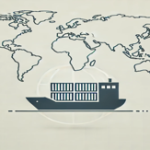Introduction
Emerging markets are goldmines of opportunity. They offer untapped potential, a growing consumer base, and increased demand for imported goods. But exporting to these markets isn’t as simple as shipping a container and hoping for the best. It requires careful planning, a deep understanding of local dynamics, and the ability to navigate challenges unique to these regions.
In this guide, we’ll break down the key factors you must consider before venturing into emerging markets. From regulatory hurdles to payment risks, we’ll explore how you can make your export journey smooth and successful.
Understanding Market Potential
Not every emerging market is a good fit for your product. Some may have demand but lack the infrastructure to support your business. Others might be highly competitive, requiring strategic positioning.
Research the Demand
Before exporting, conduct thorough market research. Identify consumer preferences, cultural influences, and local needs. Will your product fit into their lifestyle? Are there local substitutes?
Assess the Competition
Who are your competitors? Are they local brands or other foreign exporters? Understanding their pricing, marketing strategies, and distribution channels will help you carve a niche.
Study Economic Indicators
Analyze GDP growth, inflation rates, and purchasing power in the target market. A growing middle class usually signals a strong demand for imported goods.
Navigating Regulatory and Compliance Challenges
Each country has unique regulations governing imports. Failing to comply can lead to costly delays, fines, or even rejection of your shipment.
Understand Import Duties and Tariffs
Duties and tariffs can significantly impact your pricing strategy. Some governments impose high import taxes to protect local industries. Check trade agreements that may offer reduced tariffs for your products.
Certification and Standards
Certain goods require certifications before entering a market. For example, food products may need health and safety approvals, while electronics might have strict labeling regulations. Ensure you meet all the necessary compliance requirements.
Legal Documentation
Prepare and verify all documentation, such as commercial invoices, packing lists, and certificates of origin. A missing document can halt your shipment at customs.
Logistics and Supply Chain Management
Getting your goods into an emerging market is only half the battle. The real challenge is ensuring smooth distribution within the country.
Choosing the Right Shipping Method
Consider factors like cost, transit time, and the reliability of shipping providers. Air freight is fast but expensive, while sea freight is economical but slower.
Partnering with Reliable Distributors
A local partner can make or break your success. They understand the market, have existing relationships with retailers, and can navigate bureaucratic processes on your behalf.
Infrastructure Limitations
Some emerging markets struggle with poor infrastructure. Roads may be underdeveloped, ports inefficient, and last-mile delivery unreliable. Factor these into your supply chain strategy.
Mitigating Payment and Financial Risks
One of the biggest challenges in exporting to emerging markets is ensuring you get paid. Default risks and currency fluctuations can quickly eat into your profits.
Selecting the Right Payment Terms
Avoid high-risk transactions by choosing secure payment methods. Letters of credit, escrow services, or advance payments can reduce financial exposure. Be cautious about offering credit terms unless you trust your buyer.
Managing Currency Fluctuations
Emerging markets often have volatile currencies. A favorable exchange rate today might turn against you tomorrow. Consider hedging strategies or pricing in stable currencies like USD or EUR.
Understanding Tax Implications
Different countries have different tax structures. Some may impose VAT on imports, while others may have withholding taxes. Consult with a tax expert to avoid surprises.
Cultural and Business Etiquette
Success in emerging markets isn’t just about numbers. It’s also about relationships. Respecting local customs and business etiquette can set you apart from competitors.
Building Trust with Local Partners
Business in many emerging markets is relationship-driven. Face-to-face meetings, gift-giving traditions, and informal gatherings often play a key role in securing deals.
Adapting Marketing Strategies
What works in one country might not work in another. Language, colors, and symbols can have different meanings across cultures. Tailor your branding and advertising to align with local norms.
Negotiation Styles
Some cultures prefer aggressive negotiation, while others value patience and diplomacy. Understanding the preferred negotiation style can help you close deals effectively.
Leveraging Technology for Success
Technology can be a game-changer when exporting to emerging markets. From digital payments to e-commerce platforms, the right tools can simplify operations.
E-commerce and Online Marketplaces
Many emerging markets are experiencing a surge in e-commerce. Platforms like Jumia in Africa or MercadoLibre in Latin America provide access to millions of potential buyers.
Digital Payment Solutions
Cash is still king in many emerging markets, but mobile money and digital wallets are gaining traction. Offering multiple payment options can increase your customer base.
Supply Chain Tracking
Use technology to track shipments, monitor inventory levels, and optimize distribution. This ensures transparency and efficiency in your supply chain.
Conclusion
Exporting to emerging markets presents exciting opportunities, but success requires a strategic approach. Conducting thorough market research, navigating regulatory hurdles, optimizing logistics, and mitigating financial risks are crucial steps.
Equally important is understanding cultural nuances, leveraging technology, and building strong local partnerships. By addressing these key considerations, you position your business for sustainable growth in new and lucrative markets.
Emerging markets may be unpredictable, but with the right preparation, they can become your most rewarding export destinations. So, gear up, do your homework, and take the plunge into these dynamic economies!
You can contact us on WhatsApp to discuss this topic further.




